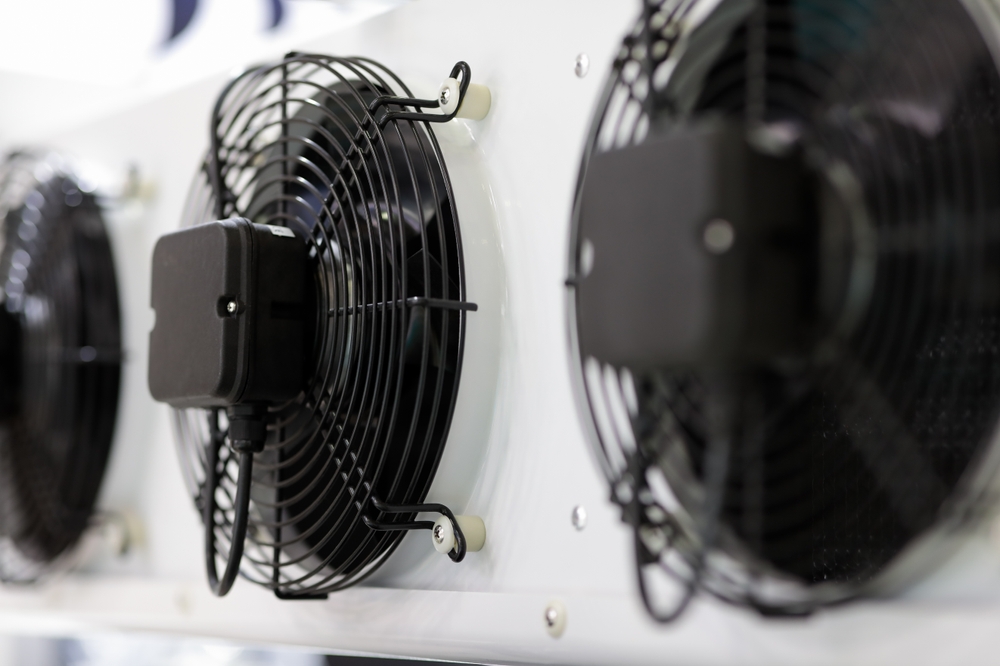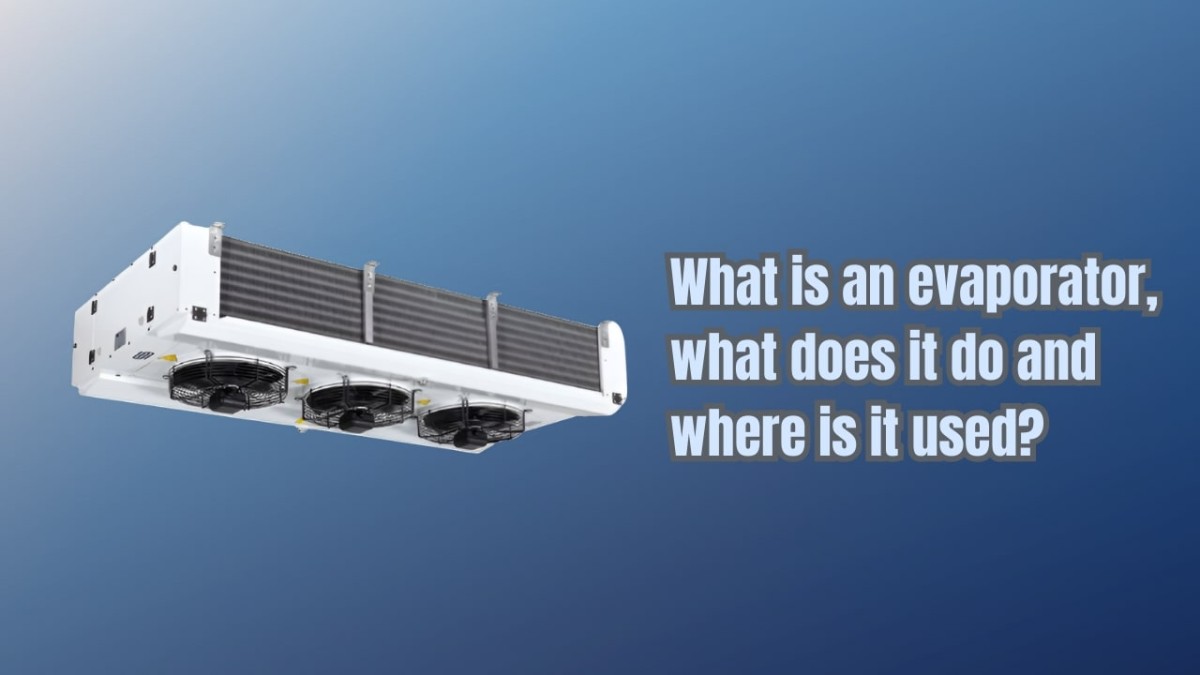
Resistance Life Enchance: Operation Maintenance and Savings Tips


Evaporator is a device that enables liquid refrigerant in cooling systems to evaporate and turn into gas. It is a critical part of the refrigeration cycle and generally cools the environment by removing heat from the environment during the evaporation process. This process allows the temperature in a particular area to be lowered by utilizing heat exchange. Günay Soğutma has a wide product range of evaporators since 1986 and offers both mass and special production options. In this context, with high quality materials and modern design principles, evaporators offer a long-lasting and efficient cooling experience.
The evaporation process is a physical change that occurs within the evaporator. Liquid refrigerant evaporates at a certain temperature by absorbing heat. Since this process takes place by taking heat from the surrounding air or other environment, it ensures that the cooling system works effectively. Evaporators are used in many areas, from industrial applications to commercial cooling systems. For example, it is an ideal solution for storing fresh products in the food industry. In particular, the cold air generated during the evaporation process helps food products maintain their freshness by extending their shelf life.
Evaporators are divided into several different types based on various design and functional differences. These include air-cooled, water-cooled and specially designed evaporators. While air-cooled evaporators perform cooling using ambient air, water-cooled ones benefit from the heat capacity of water. While air-cooled evaporators are generally preferred in commercial areas, cold storages and industrial applications; Water-cooled evaporators are used in industrial facilities with larger cooling needs.
Additionally, some evaporators are systems specifically designed for a particular application. For example, different types of evaporators have been developed for food cooling, HVAC systems or industrial cooling processes. In addition, specially designed evaporators, optimized according to the needs in a wide variety of industries, play an important role in increasing the efficiency of businesses. This diversity allows users to find the most suitable solutions according to their needs. By offering this diversity, Günay Soğutma develops solutions suitable for the special demands of customers in every sector.
The working principle of evaporators is based on the physical properties of the refrigerant. When the refrigerant enters the evaporator, it begins to evaporate by taking heat from the environment. This process causes the temperature inside the evaporator to drop. During evaporation, the molecules of the fluid separate from each other and pass into vapor form. This is the basic process that allows the environment to cool. Especially in hot weather, the efficiency of the evaporator becomes more obvious. High temperatures cause the refrigerant to absorb more heat, providing more effective cooling.
After evaporation, the gaseous refrigerant is directed to the compressor. The compressor compresses this gas, increases its temperature, and then sends it to the condenser section. In the condenser, the gas turns into liquid again and the cycle is completed. This cycle occurs continuously and performs the function of the cooling system. Evaporators offered by Günay Soğutma are designed to carry out this cycle with the highest efficiency. Thus, users can achieve more cooling capacity with less energy.

Evaporators have many advantages. First of all, they offer an energy-efficient cooling process. The evaporation feature of the refrigerant provides heat intake, allowing more cooling with less energy. They can be made suitable for different applications with various design and size options.
In addition, evaporators help reduce operating costs by increasing the overall performance of the cooling system. Thanks to their long-lasting structure, the need for maintenance is also reduced. Thus, it provides cost advantages for both businesses and users.
Evaporators are widely used in many industries. Areas such as food processing facilities, refrigeration and storage systems, industrial refrigeration and HVAC systems are the places where evaporators are most frequently used. It is effectively used in the food industry to preserve the freshness of products and extend their shelf life.
Evaporators also play an important role in automotive, white goods and air conditioning systems. This diversity increases the functionality and flexibility of evaporators and offers customizable solutions for different applications.
Regular maintenance is important for evaporators to work efficiently. As a first step, the evaporator needs to be cleaned. Dirt and dust can hinder heat transfer and reduce the efficiency of the system. Therefore, the outer surface and internal structure of the evaporator should be checked and cleaned regularly.
Refrigerant levels, ports and general operating condition should be reviewed regularly. These checks are critical for early detection of potential problems. Regular maintenance extends the life of the system and provides higher efficiency with fewer malfunctions.
Evaporator selection should be made according to the purpose of use and need. First of all, the cooling capacity should be determined and a model suitable for the needs of the business should be preferred. This directly affects the effectiveness and energy efficiency of the system.
The design and material quality of the evaporator should also be taken into consideration. Evaporators made of long-lasting and durable materials reduce maintenance requirements and increase the overall performance of the system. It is recommended to conduct detailed research to provide the most suitable solutions for users' needs.
The energy efficiency of evaporators depends on several factors. First of all, an evaporator of appropriate size and capacity should be selected. An oversized or small evaporator can waste energy. The right choice increases the overall performance and efficiency of the system.
Thermal insulation in the system is also important. Good insulation prevents heat loss and ensures that the evaporator operates with less energy consumption. In addition, regular maintenance and cleaning operations also play a critical role in increasing energy efficiency.
The operating environment of evaporators has a great impact on its efficiency. Factors such as temperature, humidity and air flow directly affect the performance of the evaporator. Good airflow increases the efficiency of the cooling system. Otherwise, heat transfer may decrease and the efficiency of the system may decrease.
Temperature changes in the working environment also affect the efficiency of the evaporator. When the ambient temperature rises, the evaporator may need to consume more energy. Therefore, the characteristics of the environment where the system will be installed should be taken into account.
Today, evaporator technology is in constant development. New materials and design techniques allow the production of more efficient and durable evaporators. Energy efficiency-oriented designs reduce users' costs by increasing environmental sustainability.
Digital control systems and remote monitoring technologies have also begun to be used in evaporators. These innovations enable the system's performance to be monitored instantly and necessary adjustments to be made quickly. Thus, it is aimed to both save energy and provide users with a better experience.
Some common problems can occur with evaporators. These include problems such as low efficiency, icing and excessive noise. Low efficiency is usually caused by lack of maintenance or insufficient refrigerant level. This causes the system to not function properly.
Icing is another common problem that occurs in the cooling area of the evaporator. This can happen due to insufficient air flow or the effects of low temperatures. Excessive noise may be caused by malfunctions in the fan motor or other components. Detecting problems in a timely manner is critical to improving the overall performance of the system.
In the future, evaporator technology is expected to see more innovation and development. Energy efficiency and environmentally friendly designs are among the priority targets. In this context, studies are continuing on refrigerants that consume less energy and do not harm the environment.
Industry 4.0 applications and smart systems are used to increase the performance of evaporators. Remote control and monitoring systems allow users to manage their systems more efficiently. These developments will help the industry progress more efficiently and sustainably in the future.

Fill out the form to discover the most suitable high-end products for your projects. Contact Us Now.